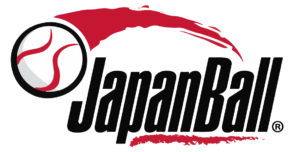October 13, 2020
By Carter Cromwell
A glance at Mark Weidemaier’s baseball resume makes it clear that he’s seen a lot. A closer inspection might remind one of an old country/western song titled “I’ve Been Everywhere”.
Well, maybe not everywhere, but a lot of wheres. His baseball life has taken him from its beginnings in the midwestern United States to countless places in the U.S., as well as quite a few spots in Latin America and Asia.
He’s known the highs and the lows. The major metro areas and places like Waynesboro, VA; Montreat, NC, and others in Mexico, Venezuela and the Dominican Republic. Nice hotels with good food … and also a lot of fast-food meals and lodging that fell way short of 5-star. Trips on jetliners, and long bus trips on bumpy roads. Ballparks that were like cathedrals and others like fixer-uppers on the edge of town. Employment with the likes of the Los Angeles Dodgers and Washington Nationals … and the West Side Wooly Mammoths.
Weidemaier has been a graduate assistant while in college, field manager in independent leagues, head coach at a small college, assistant to a university athletics director and director of special promotions, minor league manager, scouting supervisor, roving infield instructor, director of baseball academies, advance scout, special assistant to an MLB general manager and, well . . . a bunch of other things leading up to this season, his first as bench coach for manager Matt Williams and the Kia Tigers of the Korean Baseball Organization (KBO).
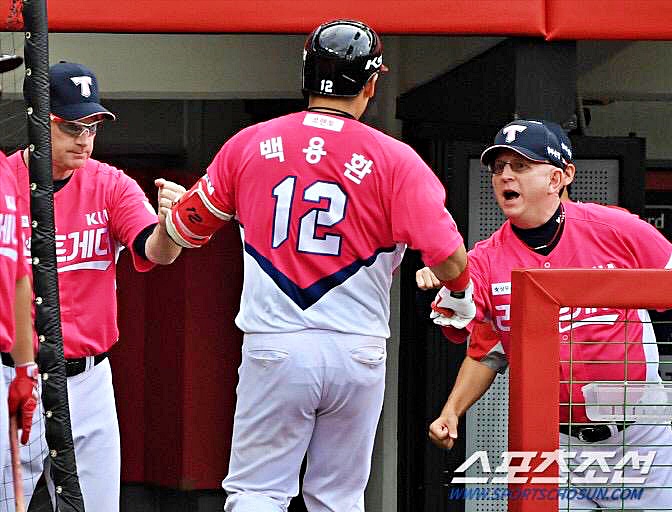
“I’ve been lucky,” Weidemaier said recently. “It’s been a great journey.”
And one not likely to end anytime soon for the 65-year-old Ohio native.
“Baseball has been my life,” he said. “I’ve got 40-plus years on the field, and I’d like to keep going.
“I have a great gig here,” he added. “The overall situation is great, and we’re making a lot of progress with the ballclub. The team finished seventh in a 10-team league last season, but we’re in fifth place now – barely out of fourth – and the top 5 teams make the playoffs. We’ve got a young club, so making the playoffs is our goal. Aside from the team itself, we’re re-working our minor-league team’s processes . . . creating a player-development manual . . . and that’s coming along.”
As with all expats, they’re getting used to a different culture, environment and style of play. As is generally the case in Asia, teams rely more on small ball than the long ball, employ more strategy and have a lot more activity on the bases. Also, since Asian cultures tend to show greater respect for older people than many Western cultures do, the players tend to listen more closely to feedback and instruction. In addition, the KBO has recently begun allowing small numbers of fans back into the games, and Weidemaier sees differences there, too.
“While fans can really be rough in their comments online, they rarely boo players during games,” he said. “That’s refreshing. Still, they’re very passionate. When I was scouting for Samsung in the KBO a few years ago, an MLB scout commented that going to a major-league game was like going to church, but going to a KBO game was like going to a rock concert.”
Weidemaier went to Korea last fall, right after Williams was hired. They ran the club’s fall development program, brought the team to Florida for spring training in January and returned to Korea prior to the scheduled start of the season. The 144-game season was delayed because of the Covid-19 pandemic and now will go into November. Because of the pandemic, it’s uncertain whether he’ll be able to go home after the season to his 12-acre spread in North Carolina, four dogs and wife he hasn’t seen for several months.
This is the second go-round for Weidemaier and Williams as a team. The first was when Williams managed MLB’s Washington Nationals in 2014 and 2015 and Weidemaier was defensive coordinator/advance coach. He ran spring training, handled the team’s defense during the season and coordinated advance scouting and game planning, as well as quality control.
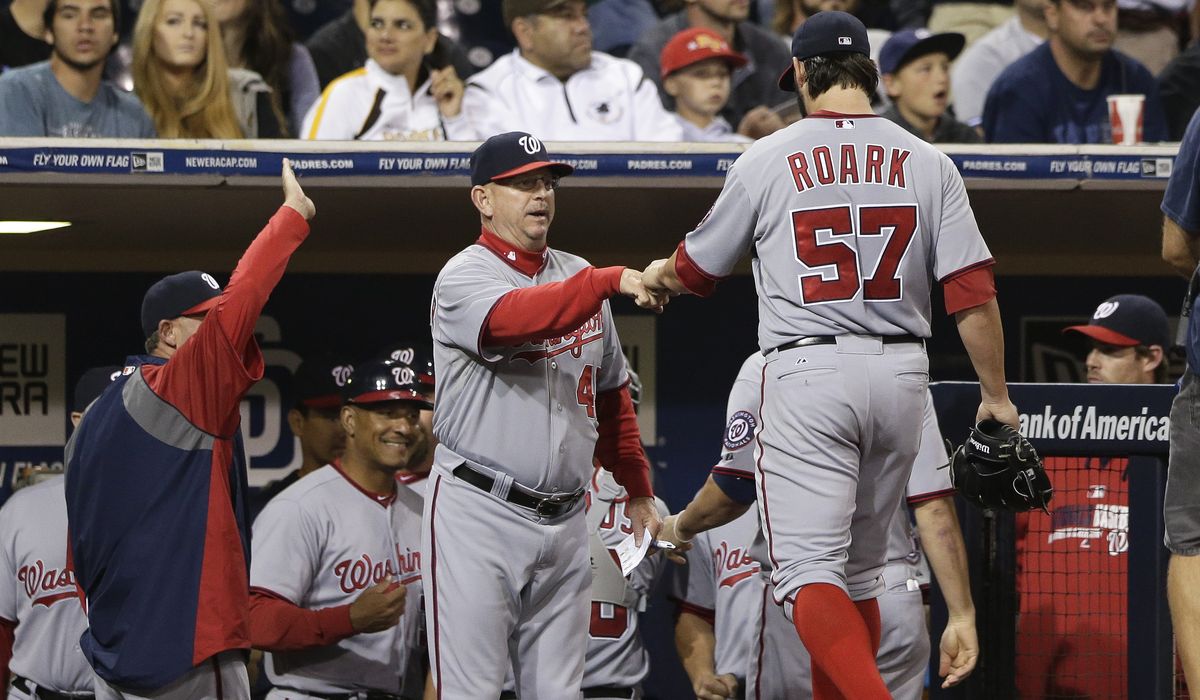
“It was incredible working in that environment,” he said. “It’s the best league in the world, and I learned the importance of putting together a team with the right makeup. Despite all the focus these days on analytics – and that can be extremely useful – the human element is still important. You need to make sure that all 25 guys have the makeup – not just the talent – to be champions, and that they mesh as a team.”
The Nationals won the division title in 2014, but suffered a first-round playoff loss to San Francisco. Despite going 83-79 the next season, Williams and his staff were let go afterward. Weidemaier then managed in the Mexican Winter League, worked for the MLB Coach Development Program in the Dominican Republic and the Bahamas, coached with the Team USA 18-Under team, scouted for Samsung, was an advance scout for the Cincinnati Reds and then managed the independent league Wooly Mammoths before catching on with Kia.
“When the job with Kia came open, I gave Matt’s name to a Korean baseball agent who represents players from the States and tries to find them jobs in Asia. The deal eventually worked out for him, and he asked me to be the bench coach. Ironically, the offer was made on the five-year anniversary of us being fired from Washington,” he said with a chuckle.
The two had met when Weidemaier left the Dodger organization to be a scout for the Arizona Diamondbacks. Williams was the team’s third-base coach at the time.
“We talked a lot and really got to know each other, and Matt said if he ever got a managing job, he’d bring me on,” Weidemaier said, “and that happened when he got the job with Washington.”

Williams, a former infielder, said in an article published at the time, “His knowledge of scouting and the intricacies of the game is great – certainly regarding the defensive part of it. He has a fantastic advance scouting pedigree . . . [and] . . . the intricacies in which he produces his reports is unmatched. I’ve worked with him on the defensive aspects of the game, especially infield play.”
Bryan Kloppe, now manager of the Roswell, NM, team in the independent Pecos League, was bench coach for Weidemaier last season with the Wooly Mammoths of the independent United Shore League in Michigan and got a close-up view of his impact on the game.
“He has an amazing baseball mind,” Kloppe said. “We still talk a lot. I send him my team plans and lineup cards, and he shows me what they’re doing. He has a ton of knowledge, and his advance scouting experience is very helpful. I implement a lot of what he’s doing defensively, and it probably meant about 15 outs for us just in the first part of the season – that’s huge. The other teams just seem to be hitting baseballs where our guys are.”
Weidemaier’s expertise and insights are the types only acquired through time and perseverance. Through countless hours talking and sharing ideas, watching games and instructing at every level, and learning from different situations wherever the work takes you.
“I don’t think about it much,” he said of all the moving around and different jobs. “It just developed that way over the years. I’ve been a scout for a lot of my career, and that takes you to a lot of different places. I’ve been in Japan as a scout and have spent a lot of time in Mexico in different roles. I was the coordinator of the academy there, and I’ve run two academies in the Dominican Republic.
“I’ve also spent 28 years in winter ball in Latin America,” he added. “Each one of those is another season in itself – a lot of baseball, and you can’t help but learn a lot.”
And see a lot.
Like during one of his sojourns in Mexico when his team went to play the Mexico City Reds, and he noticed the clubhouse guys cleaning the players’ shoes with gasoline before they polished them — “A lot of the guys were smoking while they were doing that, and I was sure they were going to blow up the place,” Weidemaier said.
Or like on bus trips when they would go through towns and see young boys holding burning sticks into which they would spit gasoline to create bigger flames – “Kids that were 8-9 years old would actually gargle gasoline and blow it into the fire to create the effect of breathing fire. People would toss money at them. It was like a sideshow.”
Or like in Venezuela, where passionate fans would throw their cups of beer into the air when a player for the home team hit a home run, thereby giving nearby fans impromptu showers. And it wasn’t always just beer – “Instead of going to the men’s room, the guys sometimes would relieve themselves in their cups,” Weidemaier said wryly.
Weidemaier’s baseball experiences began when he was a graduate assistant coach at Ohio State University while earning his master’s degree. He was then manager of Waynesboro (VA) in a college summer league; head coach at Montreat-Anderson (NC) College; assistant to the Director of Athletics for Promotion and Development at UNC-Asheville; extended spring manager and minor league coach with the Kansas City Royals; scouting supervisor; roving infield instructor; interim manager in the Texas League; director of player development at the Dominican Republic Academy for the Los Angeles Angels; manager in the AAA Mexican League; minor league manager in the Prince William-Carolina League; director of Dominican operations for the New York Yankees; director of player development for the Pastaje Mexican League academy; holder of scouting and instructor positions with the Cleveland Indians and Chicago White Sox; and, well . . . one could go on and on. As he does.
“I wasn’t yet 30, and it was hard to keep up with him last season,” Kloppe said. “He has a ton of energy, and it’s contagious.”
Williams agrees: “He’s passionate, he’s funny, he’s energetic. He’s arguably the first one there every morning and generally the last one to leave. So, he’s a perfect fit.”
Not ready to hang them up? Seeking a new career path?
Annually our members sign over 300 contracts overseas. There are a variety of levels overseas which present opportunities for players and coaches, both aspiring and established professionals.

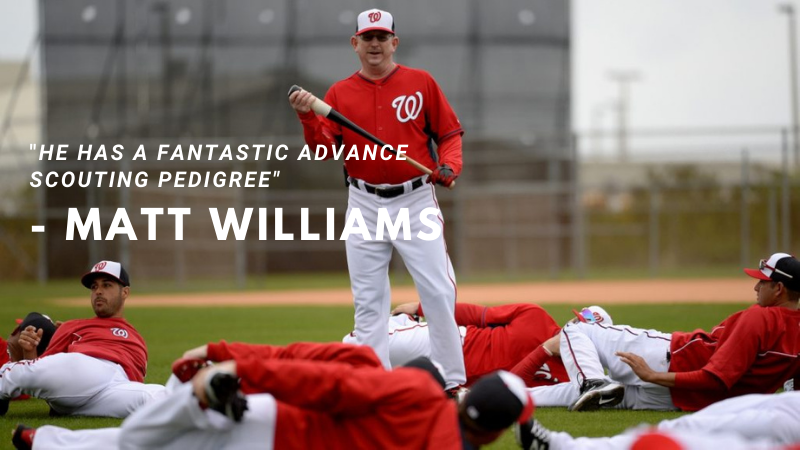
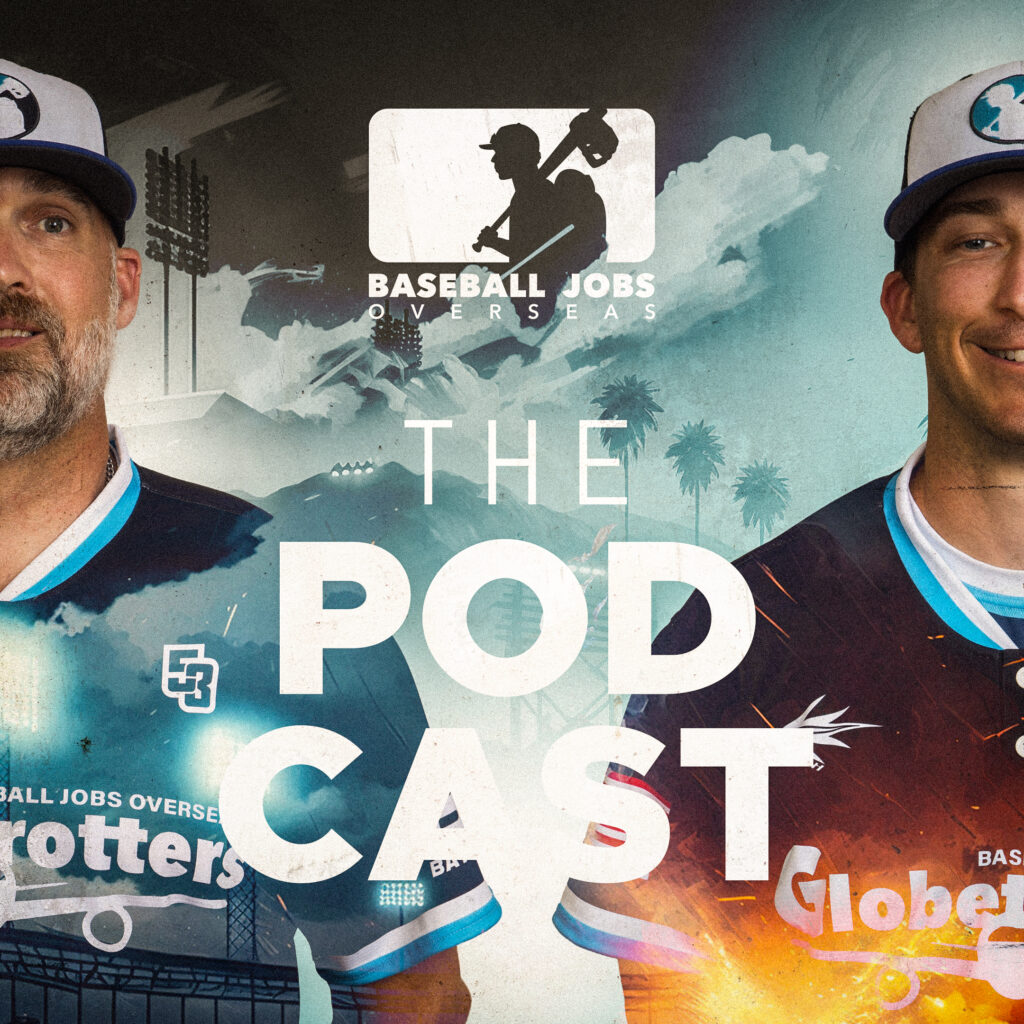

 Moonshot is a baseball apparel company based out of Mannheim, Germany, and is owned and operated by a good friend of ours, Juan Martin. What separates Moonshot from the other companies we have used in the past, is the value for your money and the customer service. You will not find prices like this in Europe or someone that responds faster.
Moonshot is a baseball apparel company based out of Mannheim, Germany, and is owned and operated by a good friend of ours, Juan Martin. What separates Moonshot from the other companies we have used in the past, is the value for your money and the customer service. You will not find prices like this in Europe or someone that responds faster. 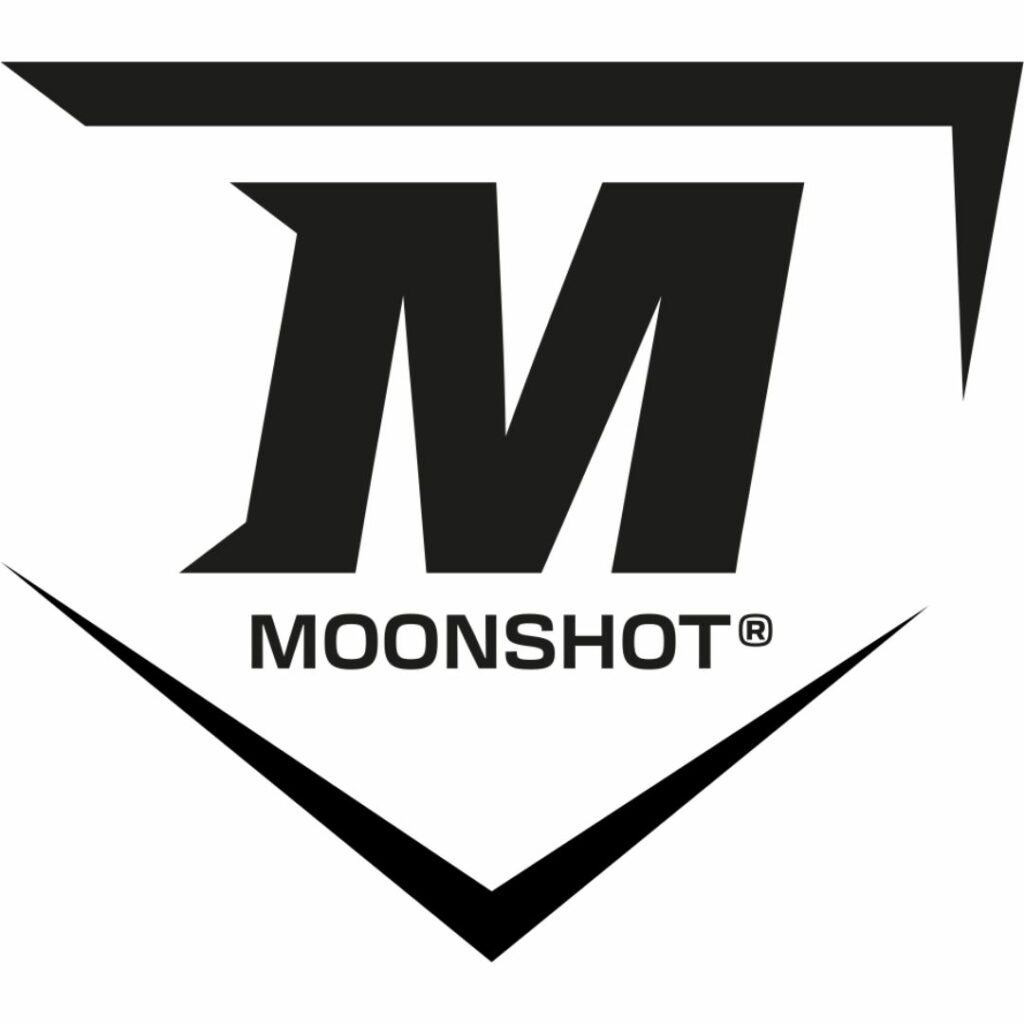
 High end, professional wood and composite bats with a wide selection of models using many different types of wood from Japan, North American and Taiwan. Hakusoh Bat is approved with the WBSC and across Europe.
High end, professional wood and composite bats with a wide selection of models using many different types of wood from Japan, North American and Taiwan. Hakusoh Bat is approved with the WBSC and across Europe. 




